REMOVING BARRIERS TO TREATMENT: Cindy’s Story
Hope, ID
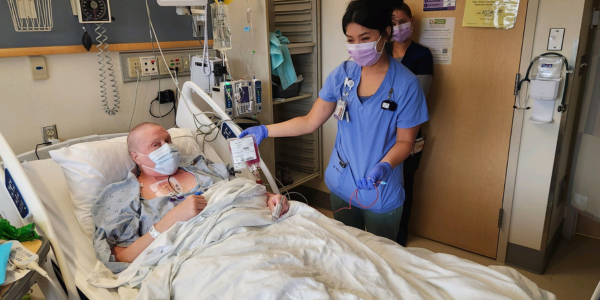
Cindy and her husband were enjoying retirement, but their golden years were threatened when she was diagnosed with acute myeloid leukemia (AML). The only path to a cure was a bone marrow transplant, a long and arduous therapy that carries a high risk of complications. The news overwhelmed Cindy and her husband, but she was determined to fight.
Following her diagnosis, Cindy spent two critical months in the hospital.
After being approved for a transplant, they had to relocate to Seattle. Treatment is intensive and bone marrow transplant patients are required to stay within 30 miles of the transplant center in case of complications.
Her husband packed up their dog Murphy and moved in with family to be closer to the Fred Hutchinson Cancer Center.
It was a scary, challenging time. Battling her disease was compounded by the stress of mounting expenses. No one plans to receive a diagnosis of blood cancer. As a couple on a fixed retirement income, the added cost of housing, transportation, and meals while in treatment was a lot to take on. How would they get through this?
That’s when the Icla da Silva Foundation stepped in. Thanks to the generosity of donors, we provided critical funds for transportation and meals during treatment.
Cindy was grateful for the support she received.
“The assistance helped us stress less about all the bills and focus more on getting well. Having cancer is stressful enough. It’s wonderful knowing that there is an organization like the Icla da Silva Foundation to lessen the burden.”
Her transplant was successful and we wish Cindy a full recovery.
Will you help a patient like Cindy as they battle a life-threatening blood cancer? Your donation will give them hope and strength to face each day.
Please donate today.
Written by: Bret Itskowitch
Mother of 5 Receives Her Bone Marrow TransplantREMOVING BARRIERS – ABBY’S STORY
Cleveland, Ohio
 Abby is a mother of five. Her children are aged 19, 16, 5, 4, and 2. March 7th was her daughter’s 16th birthday. It was also the day Abby was diagnosed with multiple myeloma.
Abby is a mother of five. Her children are aged 19, 16, 5, 4, and 2. March 7th was her daughter’s 16th birthday. It was also the day Abby was diagnosed with multiple myeloma.
Abby recently received her bone marrow transplant at the Cleveland Clinic.
Her transplant was autologous, which means she didn’t need a donor. They remove and store healthy blood stem cells from the patient, destroy the diseased bone marrow with high doses of chemotherapy, and return the stored stem cells to replace the damaged bone marrow.
Removing Barriers
Abby’s main barrier was transportation. She needed to visit the hospital every day to remove and store at least two million stem cells. This process was followed by intense chemotherapy treatments leading up to her transplant.
She has been out of work since her diagnosis. Her husband also had to take time off from work while she was in treatment. The hospital requires a 24-hour caregiver for at least 8 weeks; 4 weeks before and 4 weeks after the transplant.
The Family Medical Leave Act protects your job, but FMLA is unpaid, so the family was without income.
They were having difficulty affording travel. Their daily trip was an hour each way to the Cleveland Clinic to prepare for her bone marrow transplant. The cost of gas was a barrier.
The Icla da Silva Foundation removed her barrier with a grant for gas.
When we interviewed Abby before her transplant, we offered additional support.
Please watch her reaction:
All bone marrow transplants have one thing in common, the recovery process takes a long time. It could be a year until her immune system recovers.
Due to the generosity of our donors, we were able to provide the Ramos family with an additional grant to help with utilities and meals during Abby’s follow-up treatment.
“How Am I Supposed to Do This?”
We asked Abby about the impact we have made.
She told us, “if someone could take away just one thing off the list of things to worry about while I go through my cancer treatment, that would mean the world to me. The Icla da Silva Foundation did that for me. You gave me one less sleepless night, one more hour I get to spend with my kids without worrying about making this happen, one less guilt trip because I couldn’t do this on my own.” – Abby Ramos
We wish Abby a full recovery.
You Can Help
Please consider a donation so we can help more patients like Abby.
Cancer puts the patient in a life-threatening situation. Preparing for and receiving a bone marrow or cord blood transplant presents barriers that are not often recognized.
The goal of the Icla da Silva Foundation is to remove some of those barriers so patients can focus on their treatment.
Your gift will help us remove more barriers.
In Abby’s words, “…I couldn’t do this on my own.”
Written by: Bret Itskowitch
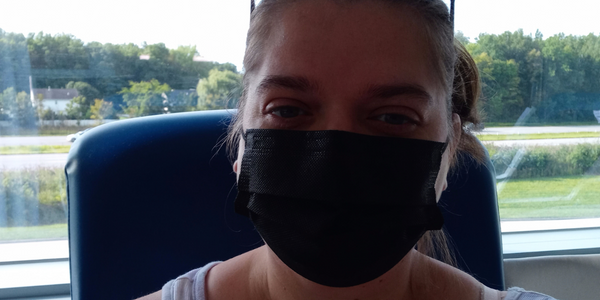
REMOVING BARRIERS – MARK’S STORY
Seattle, Washington
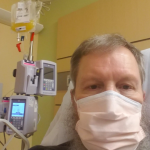 It all started when he was admitted into the emergency room in November 2021 with COVID-19.
It all started when he was admitted into the emergency room in November 2021 with COVID-19.
Something wasn’t right, and further testing led to a diagnosis of MDS, myelodysplastic syndrome. MDS is a fatal disease caused by a disruption in the production of blood cells.
Although rare, Mark was familiar with MDS.
His father received the same diagnosis many years ago. At that time, his father was considered too old for treatment. They sent him home to get his affairs in order, and he passed away 18 months later.
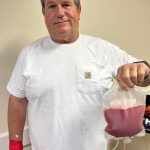 After several bone marrow biopsies, Mark was admitted to Seattle Cancer Care Alliance. He was fortunate to receive a bone marrow transplant from his brother Dave, who was a 10-out-of-10 match.
After several bone marrow biopsies, Mark was admitted to Seattle Cancer Care Alliance. He was fortunate to receive a bone marrow transplant from his brother Dave, who was a 10-out-of-10 match.
Mark received his blood stem cell transplant in June and is recovering.
Identifying Barriers
Due to complications following the transplant, he needed to remain in Seattle longer than expected for follow-up treatment. The hospital requires patients to stay within 30 minutes of the Cancer Care Clinic, but Mark lives outside of Seattle.
With daily appointments, the travel would have been too much for him. He insists it could have ended his life.
Seattle Cancer Care Alliance has a Cancer Care House, which they offer to patients at a discounted rate. Mark and his wife had already exhausted their medical leave and depleted their savings. They have been paying their bills, essentially holding two homes – their regular home and their hospital home – while receiving cancer treatment.
They weren’t sure how they would afford it, but they didn’t have a choice.
Removing Barriers – Icla Cares
A social worker from the hospital reached out to the Icla da Silva Foundation and submitted a request for assistance. Lodging during treatment for a bone marrow transplant is one of those barriers that is not covered by medical insurance. The goal of the Icla Cares program is to remove some of those barriers.
Thanks to our generous supporters, we were able to help Mark with a grant for lodging during his follow-up treatment.
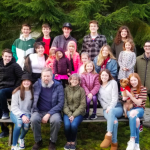 His cancer is currently in remission.
His cancer is currently in remission.
Mark told us he will be “forever grateful”, but we just want him to recover so he can return home and be a grandfather to his 20 grandchildren.
Please watch Mark Share his heartfelt story below.
The Icla da Silva Foundation has been supporting patients in need of a bone marrow transplant for 30 years. The Icla Cares program removes barriers for patients with critical needs.
Our program is reliant on the generosity of donors. Please consider donating to support patients who require a bone marrow or cord blood transplant.
No gift is too small.
Thank you.
Written by: Bret Itskowitch
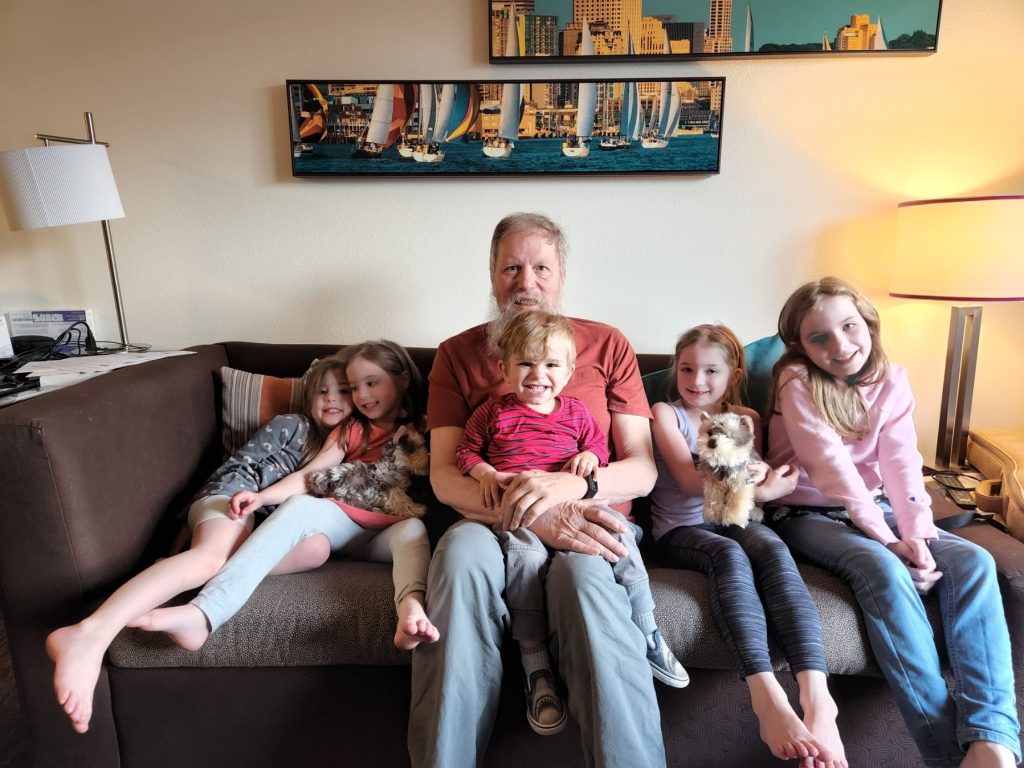
REMOVING BARRIERS – ELLY’S STORY
Durham, California
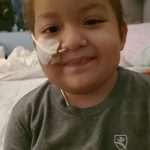 Elly Moreno-Preciosa is a 6-year-old girl recently diagnosed with Severe Aplastic Anemia. Her only cure was a bone marrow transplant.
Elly Moreno-Preciosa is a 6-year-old girl recently diagnosed with Severe Aplastic Anemia. Her only cure was a bone marrow transplant.
Fortunately for Elly, her 11-year-old brother was identified as a matching donor. She received her transplant on June 1, 2022.
Both of her parents are hard-working agricultural workers in Northern CA. They live 200 miles from the Lucile Packard Children’s Hospital, Stanford, which performed the transplant and is continuing treatment until Elly’s immune system is functioning properly.
The Family’s Challenges
Since Elly’s brother was identified as her donor, both parents had to stop working for several months to be individual caregivers for their children. COVID policies do not allow siblings at bedside. Her mother took care of Elly, while her father took care of their son.
Obviously, this had an impact on the family’s limited financial resources.
After the transplant, Elly’s father and brother returned home to work and attend school. But Elly and her Mom remained in the hospital due to complications.
Even after she is released, Elly will require follow-up visits for the next 6-12 months.
That’s a 400-mile round trip.
Undue Stress
Obviously, being diagnosed with a life-threatening disease is distressing. When children are involved, worry and fear impact the entire family. The outlook is unknown.
Patient families are concerned about paying the bills while they are unable to work. In Elly’s case, they are also worried about transportation while half of the family is living 200 miles away for continued treatment.
Individually, each of these barriers can be intense. Combined, they can be extremely overwhelming.
Removing Barriers
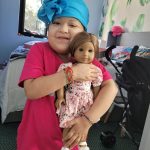 The Icla da Silva Foundation removes barriers for patients who require a bone marrow or cord blood transplant. We provide emotional, logistical, and financial support during transplant and treatment.
The Icla da Silva Foundation removes barriers for patients who require a bone marrow or cord blood transplant. We provide emotional, logistical, and financial support during transplant and treatment.
Thanks to the generosity of our donors, we were able to help Elly’s family with a small grant for rent, transportation, and meals.
Elly is doing well. Her dad and brother travel 400 miles every weekend so the family can be together.
We look forward to learning when everyone is back home. We hope the best for Elly and her family.
Please consider making a donation that will remove barriers for patient families like Elly’s.
With your help, we will continue to make a difference for patients in need of a bone marrow or cord blood transplant.
Written by: Bret Itskowitch
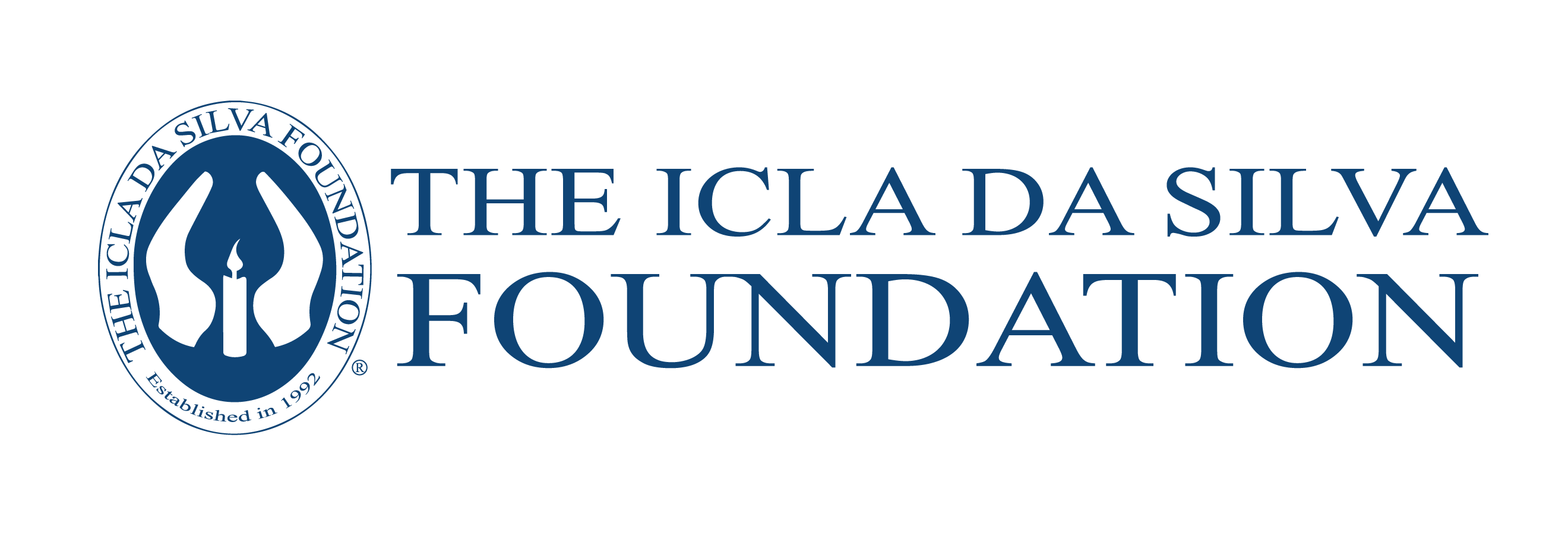
 Inglês
Inglês Espanhol
Espanhol Português
Português